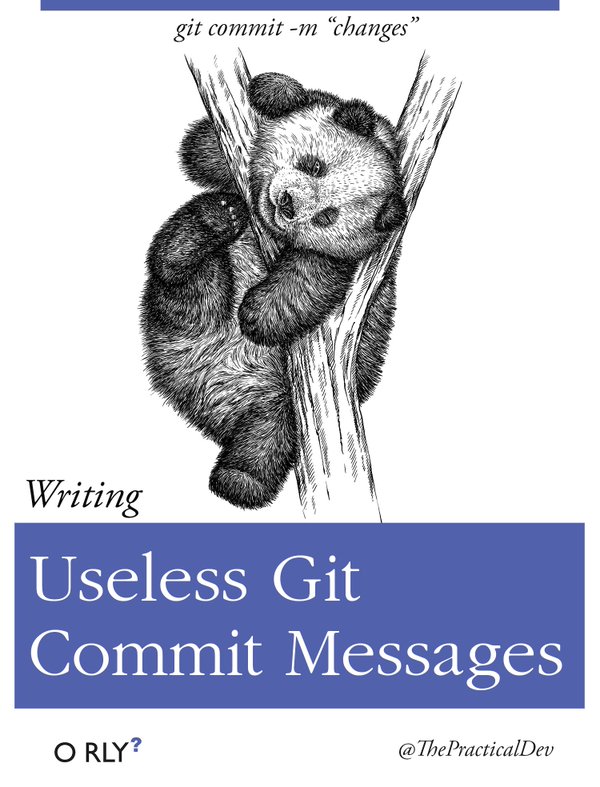
In the sprawling digital ecosystem of CodeSphere, where countless developers weave the fabric of software through the threads of collaboration and version control, there exists a peculiar yet pervasive phenomenon: "Useless Git Commit Messages." Amidst the symphony of syncs and merges, a refrain as common as it is lamented echoes through the halls of repositories: 'git commit -m "changes".'
Central to our narrative is Alex, a diligent developer whose contributions to various projects have always been marked by meticulousness and precision. However, Alex, like many in the realm of CodeSphere, occasionally succumbed to the siren song of haste, crafting commit messages that were as enigmatic as they were uninformative.
The tale unfolds as Alex, in a rush to meet the relentless demands of deadlines, commits a cardinal sin of collaboration. With a flurry of keystrokes, they execute the infamous command: 'git commit -m "changes",' sealing the fate of their latest contributions to ambiguity. The message, devoid of context or clarity, becomes a digital hieroglyph, a puzzle for future collaborators to decipher.
As the project evolves, the consequences of Alex's terse commit message begin to ripple through the team. Collaborators, tasked with navigating the labyrinth of code revisions, find themselves at the mercy of these cryptic breadcrumbs. The message 'git commit -m "changes"' becomes a symbol of frustration, a barrier to understanding and efficiency that hampers the team's progress.
The turning point comes during a critical phase of development, when the need to revert to a stable version of the project arises. The team, faced with a maze of "changes," "fixes," and "updates," feels the acute pain of Alex's oversight. The moment of reckoning is at hand, a lesson in the importance of communication and clarity in the collaborative tapestry of software development.
Chastened by the experience, Alex embarks on a journey of redemption. Recognizing the impact of their actions, they champion a new ethos for the team: Commit messages as beacons of clarity, guiding lights that illuminate the path of the project's evolution. Alex leads by example, crafting messages that not only describe the what but also the why of their contributions, turning each commit into a chapter of the project's story.
"Useless Git Commit Messages: git commit -m 'changes'" thus evolves from a cautionary tale to a narrative of growth and improvement. It becomes a rallying cry for the importance of mindful communication in the realm of version control, a reminder that each commit message is an opportunity to enhance collaboration, understanding, and the shared pursuit of excellence.
In the annals of CodeSphere, Alex's story serves as a beacon to developers far and wide, a lesson in the power of words to build bridges or to erect barriers. It is a legacy that transcends individual projects, inspiring a culture of transparency, clarity, and mutual respect in the ever-evolving world of software development.
And so, in the heart of CodeSphere, "Useless Git Commit Messages" stands as a testament to the ongoing journey of learning and collaboration. It is a reminder that in the vast, interconnected world of code, the smallest of messages can make the biggest of differences.